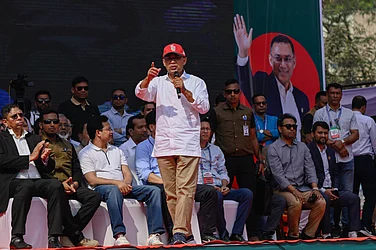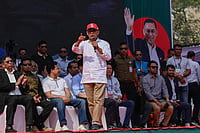Gaza is facing a catastrophic humanitarian disaster. The fresh war that broke out between Israel and Hamas earlier this month following an unprecedented attack by the Palestinian militant group has left the narrow piece of land in tatters. Thousands are dead on both sides, but it is Gaza that continues to suffer weeks after the provocation. Over a million people have been asked to evacuate their homes amid thousands of dead and buildings that have been reduced to rubble. Children of Gaza continue to be the biggest sufferers - even if they escape injuries or possible death in the ongoing war, it's the trauma of the war that will continue to haunt them for their lives. In fact, the children have even started to write their wills! With Gaza almost running out of water, food and other supplies, and hospitals being struck by air strikes, Gazans have been left with only one question to ask: how do they survive? In its latest issue, Outlook looks at this war that is fast turning into a humanitarian tragedy of humongous proportions. The stories and columns explore the history of the conflict and try to find answers to a pertinent question - whose side should we be on when children are dying on both sides?
The current issue also explores the stories of women characters of Ramayana whose tales have largely remained hidden over the centuries. However, some of the retellings of the Ramayana have dared and managed to change the lens as well as the plot, too. "Retelling, an interventionist approach, is to bring out these other voices, these other stories. In this issue of Outlook, we look at the women of the Ramayana as an interrogation of dominant narratives," writes Chinki Sinha, Editor, Outlook Magazine.






















